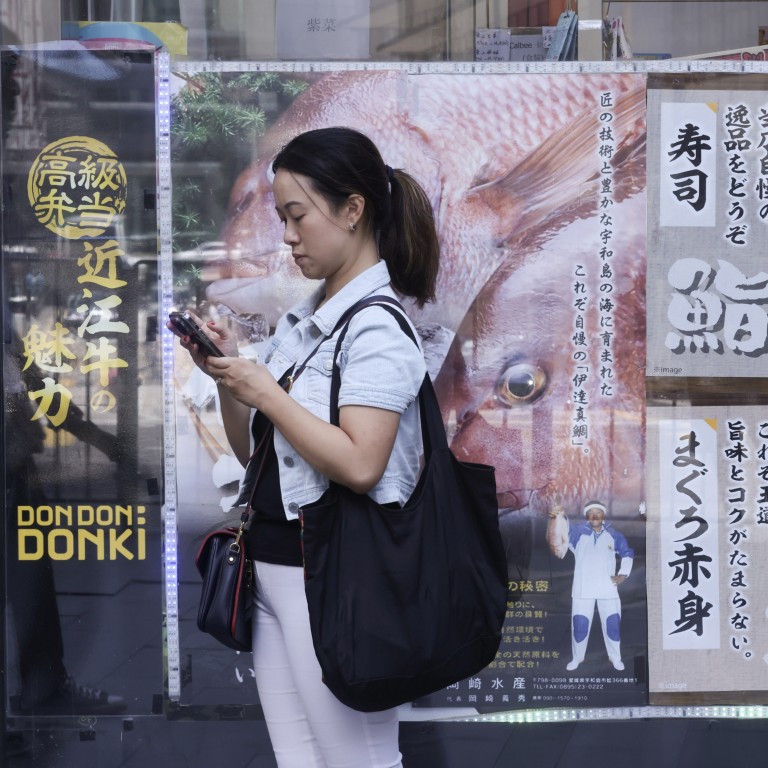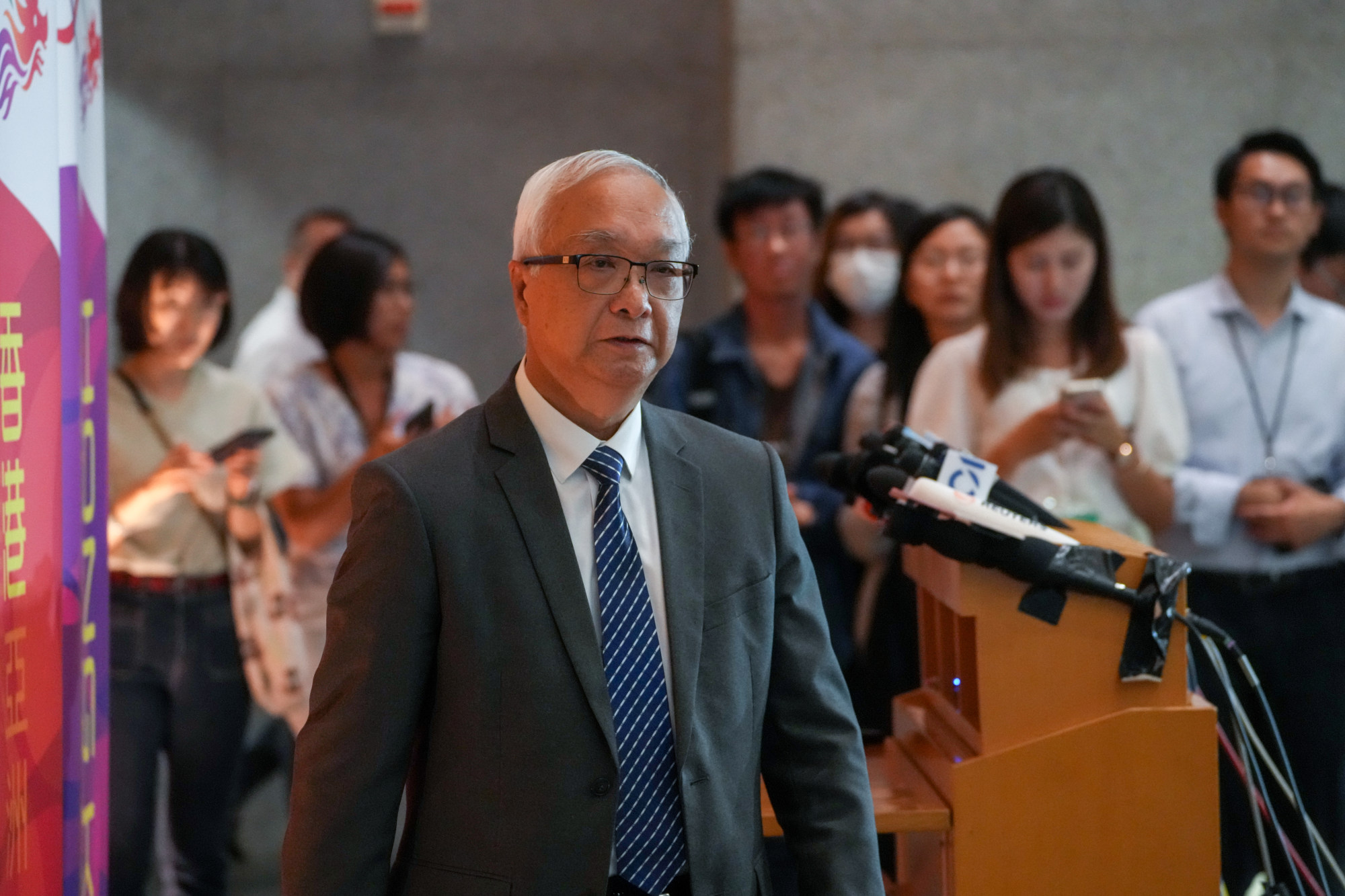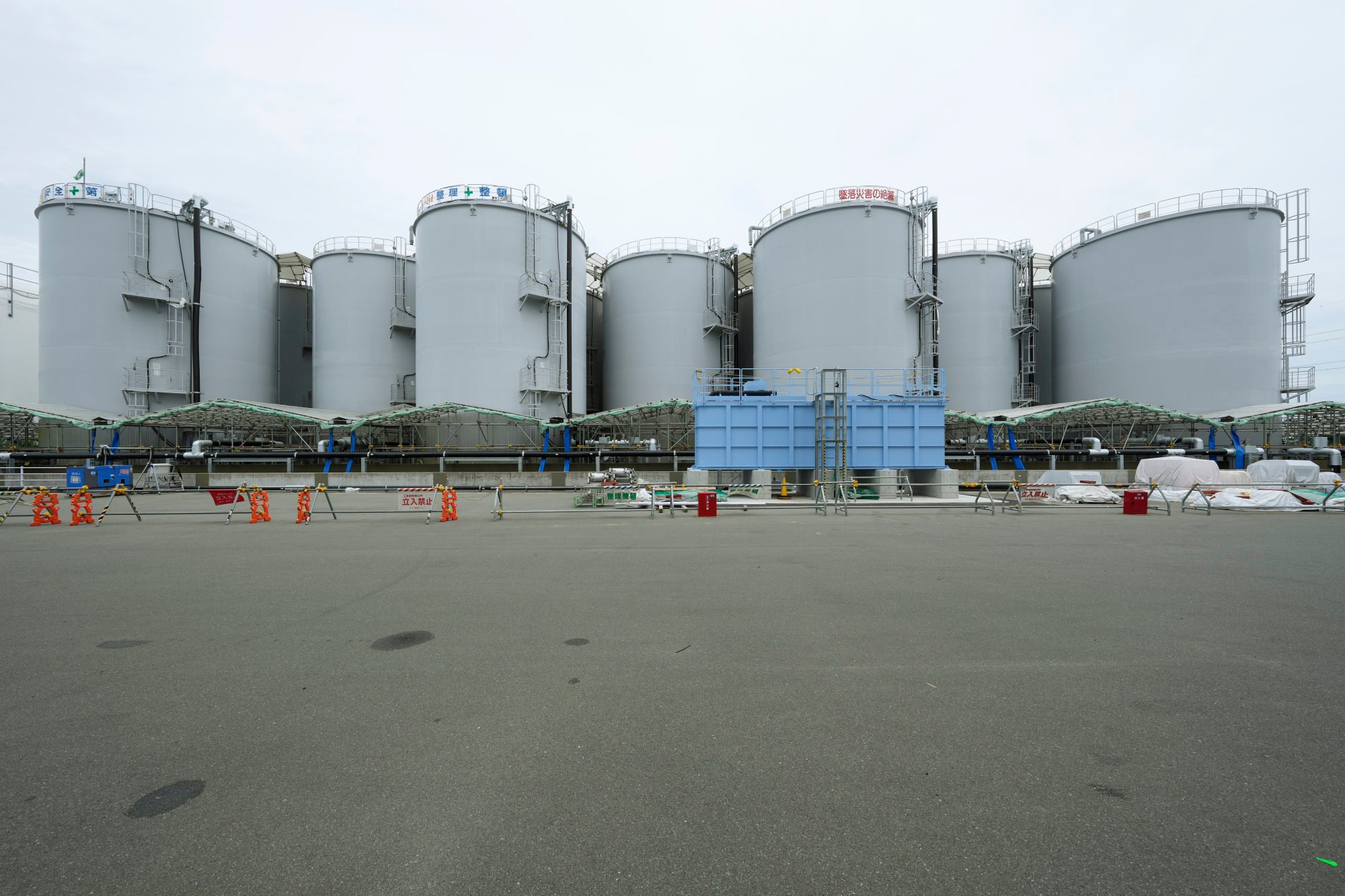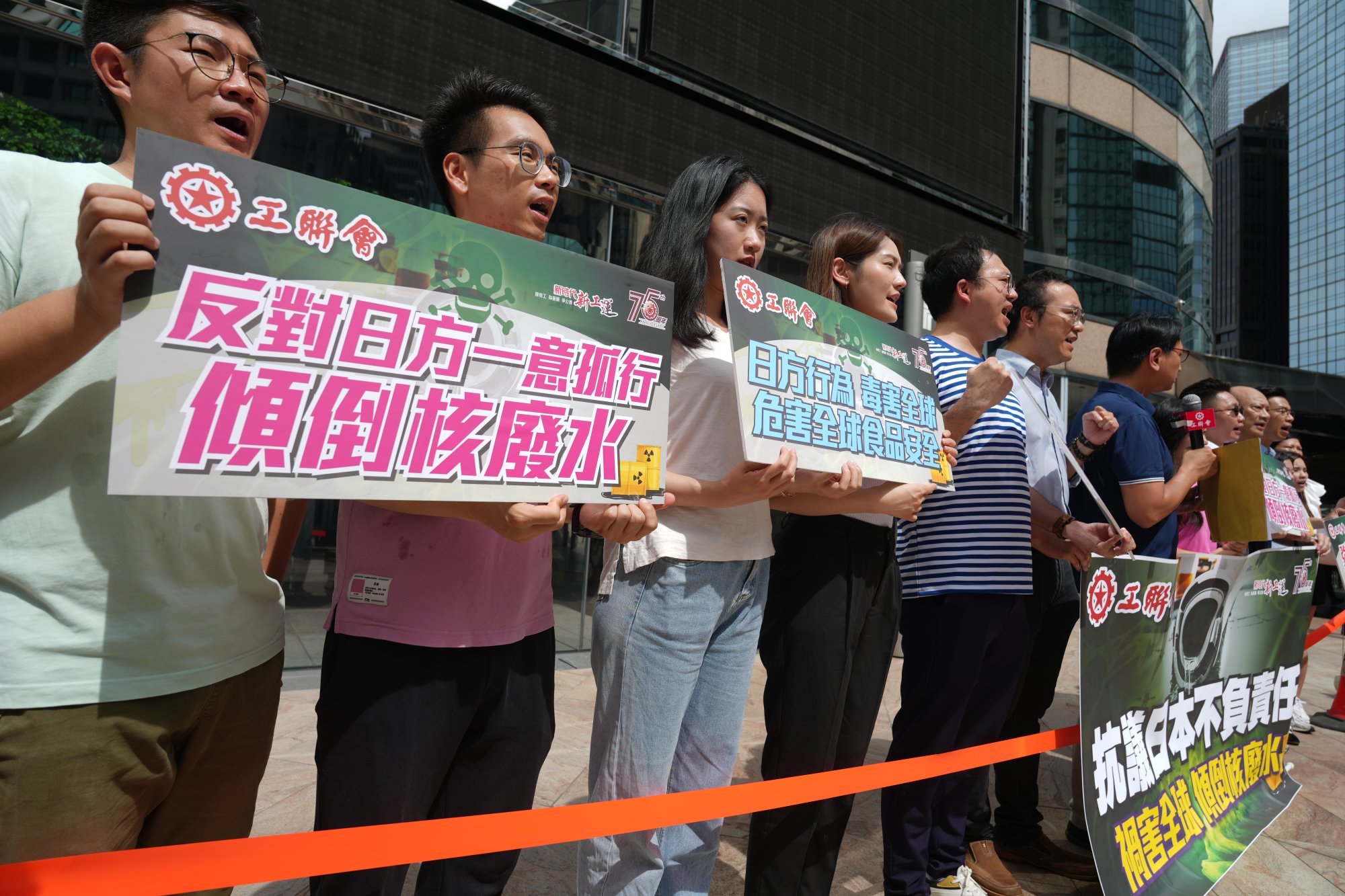
Hong Kong to ban Japanese seafood imports from 10 prefectures after country announces plan to release Fukushima waste water starting Thursday
- City authorities will also publish daily test results on other food imported from Japan, environment chief Tse Chin-wan says
- Japanese Consul General Kenichi Okada calls ban ‘extremely regrettable’ and notes discharge plan was endorsed by International Atomic Energy Agency
Hong Kong will impose an indefinite ban on Japanese seafood imports from 10 prefectures and publish the results of daily tests on other food from the country starting on Thursday, when Tokyo begins to discharge treated waste water from the Fukushima power plant.
The Hong Kong government expressed “strong opposition” to the controversial plan on Tuesday, while the Japanese consul general said it was “extremely regrettable” the city was going ahead with the ban.
Secretary for Environment and Ecology Tse Chin-wan said the “precautionary measures” were necessary to ensure food safety as Tokyo had failed to “offer a good answer” on how it would eliminate the risks posed by the discharge plan.
“We are taking a more conservative and safer approach … to assure Hongkongers that all Japanese imports are safe, and we can consume them with peace of mind,” Tse said after Japanese Prime Minister Fumio Kishida announced the water discharge would start on Thursday if weather allowed.
City leader John Lee Ka-chiu also slammed Japan for “imposing its problems on others irresponsibly”.
Tokyo plans to release 1.32 million metric tonnes, equivalent to 500 Olympic swimming pools, of treated radioactive water over 30 years, sparking concerns about the long-term effects on the ocean food chain.
Tse said the government remained unconvinced by Japan’s claim that its purification system would remove most of the radionuclides, elements that release radiation as they break down, from the waste water.
“We have raised concerns about how [Japan] will ensure the system remains problem-free for three decades and how they will handle any accidents to guarantee our safety,” he said.
Japanese Consul General Kenichi Okada noted his government had studied the discharge plan for more than six years, and the International Atomic Energy Agency, agreed after a two-year review that the release would have a negligible impact on the people and the environment.
China and Russia accuse Japan of dumping Fukushima water for cost reasons
“It is not true at all about the point of irresponsibility,” he told the Post. “The safety of Japanese aquatic products has been scientifically proven in the first place.”
The ban will apply to the prefectures of Tokyo, Fukushima, Chiba, Tochigi, Ibaraki, Gunma, Miyagi, Niigata, Nagano and Saitama, covering all fresh, frozen, chilled, dried or processed seafood, as well as sea salt and seaweed.
Details of the ban would be gazetted on Wednesday and the government would hold a press conference explaining how it would be implemented, Tse added.
Hong Kong is Japan’s second-largest market for fisheries exports, with mainland China being the largest. In 2022, the city imported Japanese seafood products worth about 75.5 billion yen (US$536 million), accounting for more than 20 per cent of Tokyo’s total marine product exports, government data showed.
The mainland already has a similar ban in place, and Macau is set to also follow suit, while most Western countries have gradually lifted their restrictions in the years since the nuclear disaster in 2011.

Asked how long Hong Kong’s ban would last, Tse did not provide a timeline but said the government planned to release a daily report detailing the screening results of Japanese food imports. The report would also include the radiation levels of Hong Kong waters and locally caught seafood.
In mid-June, the Centre for Food Safety expanded its testing regime to all Japanese food imports and strengthened screening of seafood products.
The minister vowed the extra testing would not further delay customs clearance of other imported food from Japan, which currently takes about three hours.
Reacting to Tokyo’s announcement, shoppers and diners in Hong Kong said they might reduce their Japanese seafood intake.
Japan to release Fukushima waste water into the ocean starting on Thursday
Accountant Ryan Sun, 25, said he and his parents decided to spend HK$700 (US$89) at a sushi restaurant in Causeway Bay after learning of the news.
“We may stop eating Japanese seafood for one to two months to see if any test reports have been published to ensure safety,” he said. “We hope the results will be fine as we usually have Japanese meals a few times a week.”
A woman surnamed Ngai shopping at City’super said she was buying salmon belly sashimi but would not eat such products after Thursday.
“Though the substances in the waste water cannot be seen with the naked eye, we don’t know whether they will hurt our health in the long run,” she said.

A man who only gave his surname as Chow said he would reduce his sashimi intake from three times a week to just once and discourage his 16-year-old daughter from eating seafood from the country.
“We will try to avoid buying seafood near Fukushima and instead opt for those from Hokkaido,” he said, while shopping at the Sogo department store.
Catering industry representatives said they were concerned consumer confidence in Japanese seafood could take months to recover.
“We are more concerned that Hongkongers will stop buying seafood because they’re scared,” said Lee Choi-wah, chairman of the Hong Kong Chamber of Seafood Merchants.
“With stricter testing and checks, we hope the government can restore consumer confidence that the food allowed into Hong Kong is safe for consumption.”
Opinion: Japan should heed fishing industry fears about Fukushima discharge plan
Alvin Lam Chin-cheung, the owner of Hirou Tsuki izakaya serving Japanese food in San Po Kong, predicted he would pay his suppliers more, noting prices had increased 10 per cent in the last month.
“The import price will increase further after the ban is in force due to less supplies being available,” Lam said. “I might need to seek seafood locally or even in Europe and pass on the costs to customers.”
Maxim’s Group, who owns popular Japanese eateries including Genki Sushi, Sen-Ryu and Uo-Show, said none of the ingredients it used were subject to the import ban.
“We will continue to closely monitor the situation, maintain open lines of communication with the relevant local government departments, and strictly follow the guidelines set by the Centre for Food Safety,” the group said.
When speaking to the press on Tuesday, the environment minister stopped short of announcing any subsidies or aid for businesses likely to be affected by the ban, but said authorities had been communicating with the industry to help them find alternative sources for imports.

“The best way to help them is to ensure that all food sold in Hong Kong is safe, so consumers have the confidence to continue eating at restaurants,” he said.
Lawmakers from the Federation of Trade Unions protested outside the Japanese consulate and handed a petition letter to a representative, strongly condemning Tokyo’s decision to discharge the waste water.
“After two or three years, if the issue gets less international media attention, will Japan continue handling the discharge with such high-cost and rigorous procedures?” lawmaker Bill Tang Ka-piu said.



